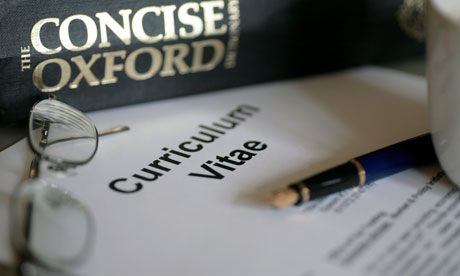If you are looking for a new job, you know you need to make a great impression. All application documents must be error-free if you are to get to the interview stage. Therefore you need to make sure you are submitting the best possible representation of yourself.
A CV and Résumé are similar in that they’re both documents that summarize your professional history, education, skills and achievements. They’re also both documents you might provide an employer for consideration for an open position.
It is important to note, however, that Résumé and CVs are not interchangeable. A Résumé is a shorter-form document that provides a concise overview of your previous roles, skills and details about your education. (The French word résumé translates to “abstract” or “summary.”) A CV, on the other hand, is typically a longer, more detailed document focused largely on work experience, academic coursework and research. A Résumé should be as concise as possible. Usually, a Résumé is one page long, whereas a CV is maybe 2, or at an absolute maximum, 3 pages in length.
Your CV must showcase your knowledge, skills and experience, in a condensed and concise way. This makes it particularly important that you choose the right words and format so that you show yourself in the best way possible.
At a time when there is strong competition for many job openings, applicants simply cannot risk sending off sub-standard documents and expect to be taken as seriously as a candidate. The Cover Letter is also vital in giving the correct impression and supporting you in getting that all-important interview.
We can carry out the same thorough review of covering letters and other application documentation, even to the point of tailoring letters and CVs to different roles and job specifications, if required.
Click here for more details on Cover Letters, and their important role as part of the application process.
As lots of people may be, for any number of reasons, working on their CVs at the moment, it is worth noting that some really useful resources are available for free on University websites.
This one, from the University of Bedfordshire, points out some of the more obvious areas to consider and check.
http://www.learnhigher.ac.uk/…/SPaG-for-Careers-checklist-1…

As Proofreaders, we approach CVs and Résumés from several different angles:
1) Spelling, punctuation and grammar
These are things you would expect from any Proofreader; they are the absolute minimum required. For instance, submitting a job application with a spelling mistake in the covering letter does not bear thinking about, so the first stage of the work is to ensure that every word, comma and the sentence as a whole, is correct.
2) Clarity and brevity
If you send a seven-page CV to a company or recruiter, it will almost certainly be ignored. The document needs to be as brief as possible, while still conveying your relevant experience. Therefore every word in the document has to count, and sometimes it takes somebody one step removed to spot when a point has been repeated or when a sentence could be shortened. At this stage, we go through the CV or Résumé and make sure your points are expressed clearly and concisely.
3) Consistency
An error that occurs frequently in CVs and covering letters is inconsistency in language and punctuation. For instance, when work experience is sometimes listed in the passive voice, sometimes in the past tense, and in other instances in note form, it makes it confusing to read and it looks sloppy. By removing any inconsistencies in the content and format of your CV, we will make absolutely sure that it comes across as the impressive professional document it should be.

4) The best possible you
Job applications, Cover Letters, Résumés and CVs need to really show off your skills and abilities. If we spot a sentence or paragraph that does not portray you in the best light, we will suggest alterations that are more reflective of your most positive attributes.
Get in touch, and let us know what you are looking for!
